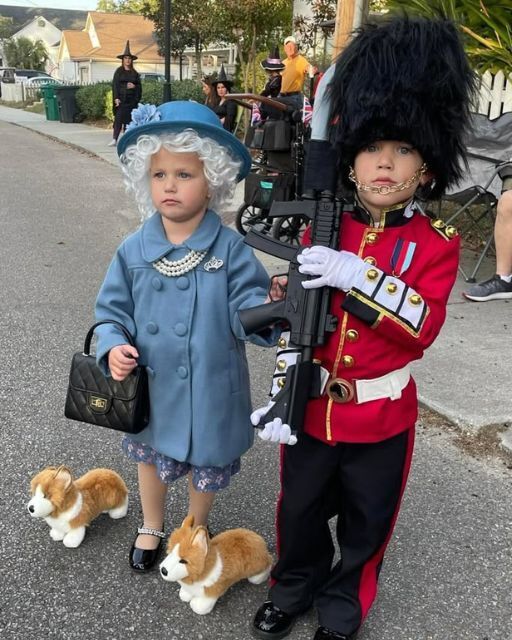We thought we were just in for a lighthearted afternoon when we joined Brighton’s quirky “Dress British” Halloween-style parade. My daughter lit up in her little Queen Elizabeth costume, her sash adorned with stitched corgis, while my son proudly marched beside her as a royal guard, complete with a fuzzy bearskin hat and a toy rifle. People smiled, snapped photos, and even handed them tea biscuits. It felt like a charming, picture-perfect family moment—until we reached the town square.
There, an older woman stood watching—bundled in a heavy coat, scarf drawn tightly. Her stare was intense. “Excuse me,” she said, stepping forward. “I hope you’re not teaching them to celebrate the monarchy.” I paused, caught off guard. She didn’t wait for an answer—she launched into a passionate critique about privilege, colonialism, and the dangers of glorifying power. I could feel my face flush as she challenged me to consider what messages I was sending my kids.
I tried to respond calmly. “They’re just dressed up—it’s fun for them. They’re not thinking about history yet.” She shook her head. “That’s the issue. They’re getting the fairy tale, not the full story.”
My daughter twirled in her dress, beaming. The woman’s gaze softened for a moment… then she muttered, “That’s exactly what I mean,” and disappeared into the crowd.
The parade continued, but her words lingered. Later that night, back at the hotel, I couldn’t stop thinking about it. I started researching—about Britain’s imperial history, the impact of colonialism, the complicated legacy behind the crown. What was meant to be a simple costume now felt layered with meaning I hadn’t fully understood.
Months later, at home, my daughter asked me, “Mom, why do some people like the queen if she wasn’t nice to everyone?” That was the moment I’d been waiting for. We sat down and talked—not just about royalty, but about history, inequality, and how stories can have both glitter and grief. She listened, asked thoughtful questions, and I felt grateful to share that learning with her.
The woman’s words had felt harsh at the time—but they sparked something important. I may not be able to shield my children from every hard truth, but I can guide them through it—with openness, honesty, and curiosity. Looking back, that uncomfortable moment in Brighton may have been one of the most valuable parenting lessons of all.
